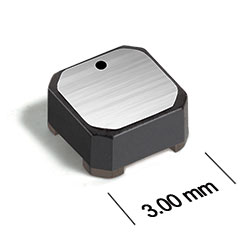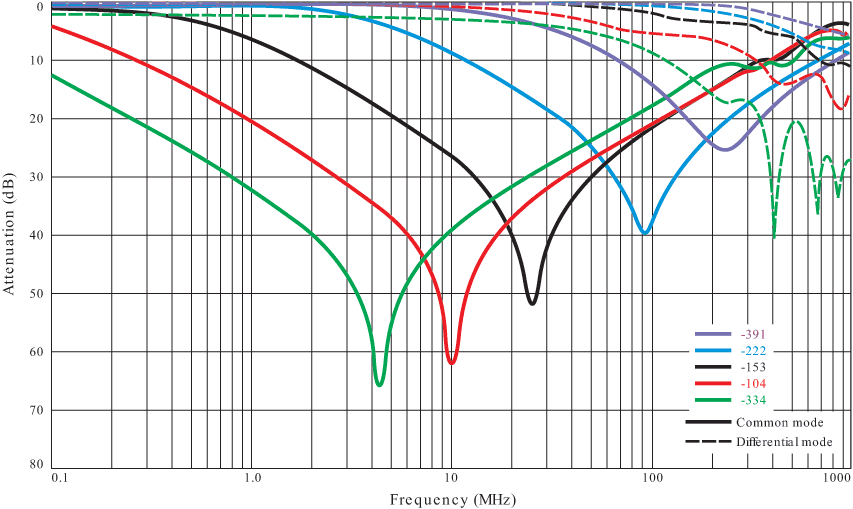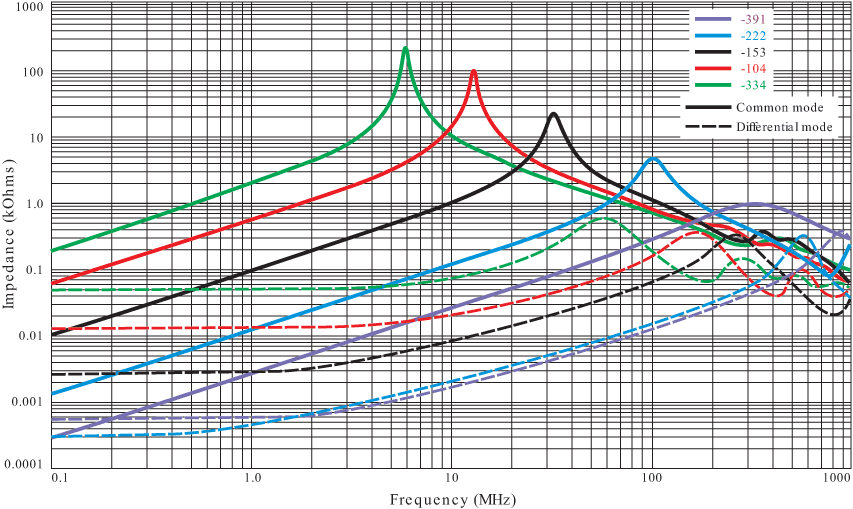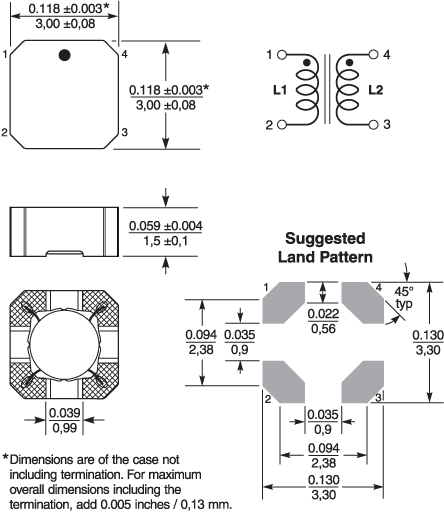
3D Model
Datasheet
Specifications
| Part number 1 |
Common mode peak impedance (kΩ) |
Cutoff frequency (MHz) 2 |
Inductance (µH)
3
(Tolerance: ±20%) |
Irms (A) 4 | DCR max (Ω) 5 |
Isolation Voltage (Vrms) 6 |
|---|---|---|---|---|---|---|
| ML412PJD152MLZ | 3.56 @ 130 MHz | 330 | 1.5 | 0.86 | 0.204 | 100 |
Notes
- When ordering, please specify termination and screening codes: e.g. AE412PJD334MLZ.
- Frequency at which the differential mode attenuation equals −3 dB.
- Inductance shown for each winding, measured at 100 kHz, 0.1 Vrms, 0 Adc on an Agilent/HP 4284A LCR meter or equivalent.
- Current that causes a 40°C temperature rise from 25°C ambient. This information is for reference only and does not represent absolute maximum ratings.
- DCR is for each winding.
- Interwinding isolation (hipot) tested for one minute.
Termination:
- L = Silver-palladium-platinum-glass frit.
- R = Matte tin over nickel over silver.
Testing:
- Z = Unscreened
- Y = Unscreened (SLDC Option A)
- W = Unscreened (SLDC Option B)
- H = Coilcraft CP-SA-10001 Group A
- G = Coilcraft CP-SA-10001 Group A (SLDC Option A)
- D = Coilcraft CP-SA-10001 Group A (SLDC Option B)
- Screening performed to the document’s latest revision.
- Custom testing also available.
- Country of origin restrictions available; prefix option G.
Environmental
Ambient temperature range:
–55°C to +105°C with Irms current.
Storage temperature range:
Component: –55°C to +155°C.
Tape and reel packaging: –55°C to +80°C.
Tape and reel packaging: –55°C to +80°C.
Maximum part temperature:
+155°C (ambient + temp rise).
Failures in Time (FIT) / Mean Time Between Failures (MTBF):
Performance curves
Attenuation (Ref: 50 Ohms)

Impedance vs Frequency

General specification
Core Material:
Ferrite
Weight:
48 – 66 mg
Winding to Winding Isolation:
100
Soldering/Washing
Moisture Sensitivity Level (MSL):
1 (unlimited floor life at <30°C / 85% relative humidity).
Resistance to soldering heat:
Max three 40 second reflows at +260°C, parts cooled to room temperature between cycles.
Refer to Soldering Coilcraft Components before soldering.
PCB Washing:
Tested to MIL-STD-202 Method 215 plus an additional aqueous wash. See Doc787_PCB_Washing.pdf.

